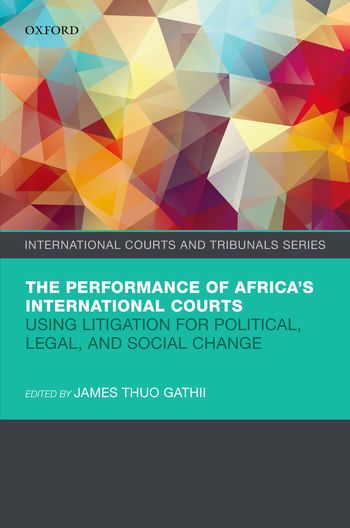
The performance of international courts has traditionally been judged against criteria of compliance and effectiveness. Whilst these are clearly desirable objectives for litigants before Africa's international courts, this book shows that we must look beyond these criteria to fully appreciate the impact of these courts. This book shows how litigants use their participation in international litigation to achieve other objectives: to amplify political disputes with their governments, to build their movement, to educate the public about their cause, and to challenge the status quo. Chapters in this collection show how these courts act as coordination points for opposition political parties to name and shame dominant parties for violation of their organizational rights. Others demonstrate how Africa's international courts serve as transitional justice mechanisms in which truth telling about ongoing conflict and authoritarian governance receives significant attention. This attention serves as a platform to galvanize resistance against continued authoritarian rule, especially from outside the conflict countries. Ultimately, the book shows that these courts must be judged against new and broader criteria, and understood as increasingly important venues for waging political, social, environmental, and legal struggles.